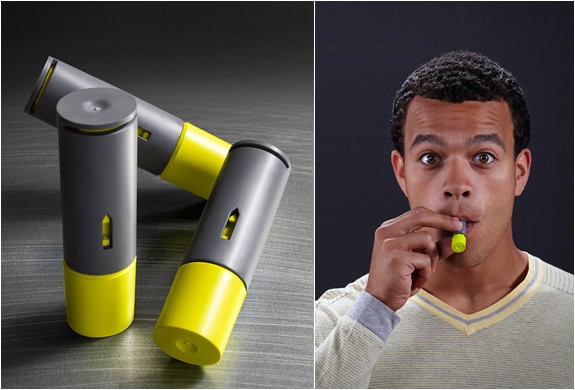Caffeine lovers beware: AeroShot, a type of inhalable caffeine, has yet to be approved by the Food and Drug Administration and is still being reviewed for potential health risks.
Since AeroShot is currently being sold as a dietary supplement, it does not require the FDA’s approval because of a law stating that dietary manufacturers are responsible for ensuring the safety of their supplement before it hits the market. But Charles Schumer, a senator from New York, has asked the FDA to look into the product.
Invented by a Harvard biomedical engineering professor, AeroShot allows students to consume caffeine in one breath. The product may be preferred by some because it does not contain common additives used to enhance the effects of caffeine or energy drinks, according to Tom Hadfield, CEO of Breathable Foods.
“We will cooperate fully with the FDA’s review to address the issues raised by Sen. Schumer and are confident that it will conclude that AeroShot is a safe, effective product that complies with FDA regulations,” Hadfield said.
Each canister contains one 100-milligram serving size, or four to six puffs, of caffeine. It delivers the same amount of caffeine into the body at about the same rate as a cup of coffee, Hadfield added.
Adam McClendon, a physiology senior, said that his caffeine consumption is less about having extra energy and more about the joy of drinking coffee. AeroShot would just deprive a person from enjoying coffee, he said.
Because the FDA has not yet approved the product students can’t really know how the body or lungs pick up on the caffeine, according to Ferena Salek, an assistant professor in the College of Pharmacy.
“How do we know how much caffeine is really being given in a canister?” Salek asked.
Because the FDA has not regulated the production of AeroShot, Salek said, the canister may or may not include the full 100 milligrams of caffeine that Breathable Foods claims it has. The project could also lead to a higher risk of seizures than a cup of coffee, because the easiness and quickness of inhalable caffeine could make people take more than the recommended dose, she added.
“I would first look into the side effects of the product, if it’s cheaper than coffee and not harmful, then I don’t see why I wouldn’t use it,” said Trang Nguyen, a junior studying molecular and cellular biology.
Breathable Food Inc. does not recommend AeroShot for individuals under the age of 18, and that no more than three canisters should be used per day.
AeroShot is currently being sold in Massachusetts, New York and France for about $3.









